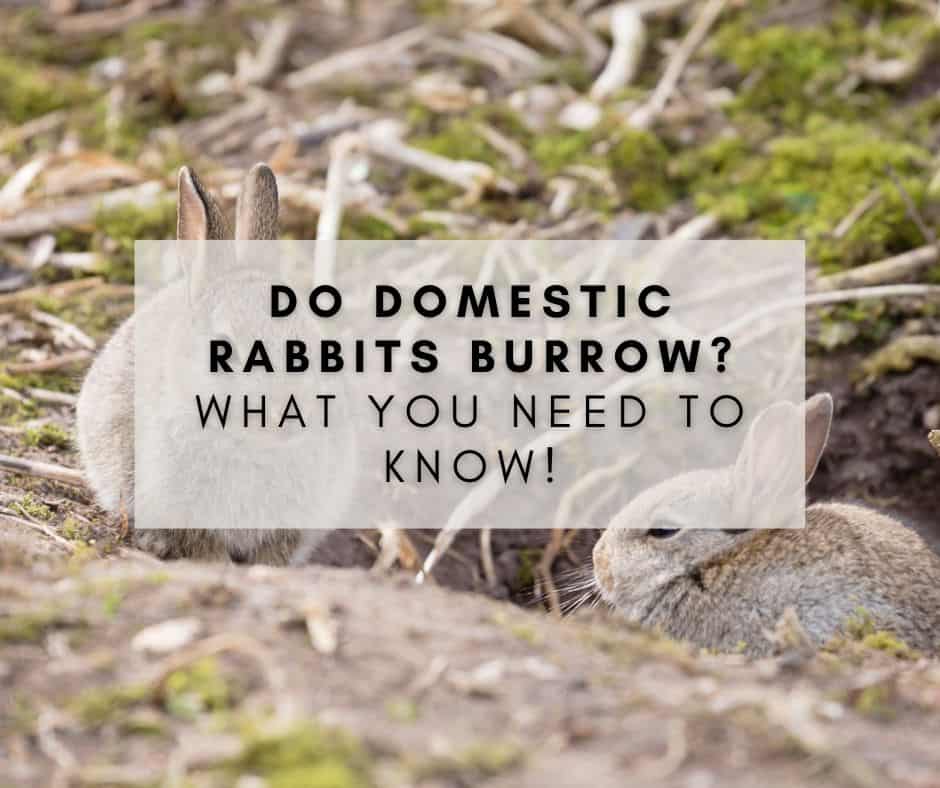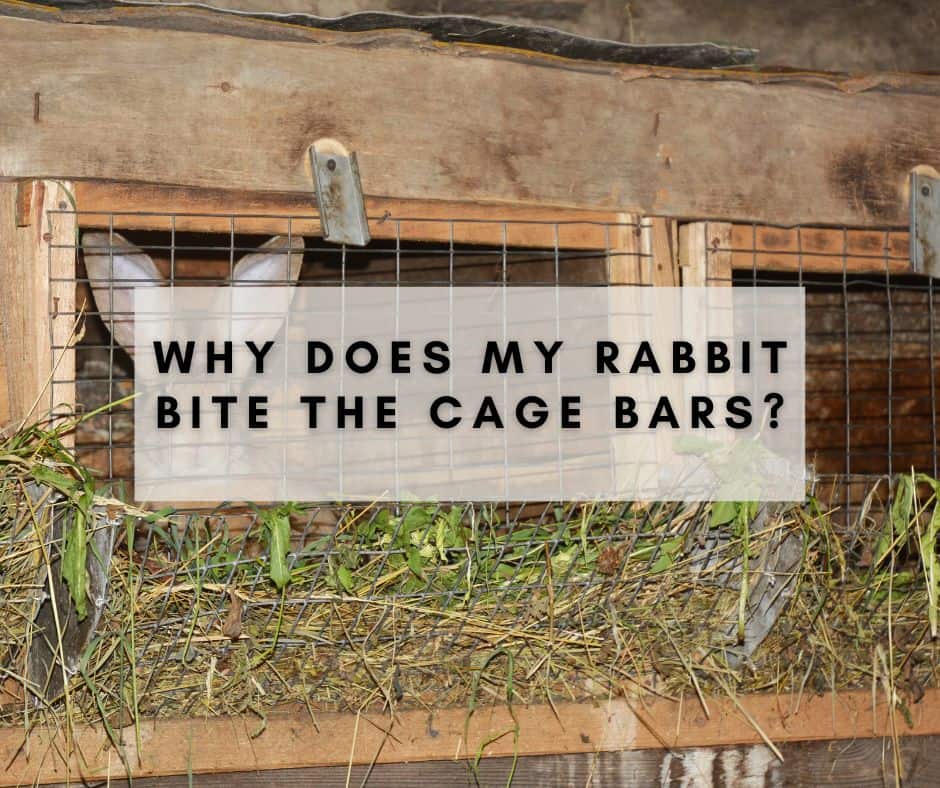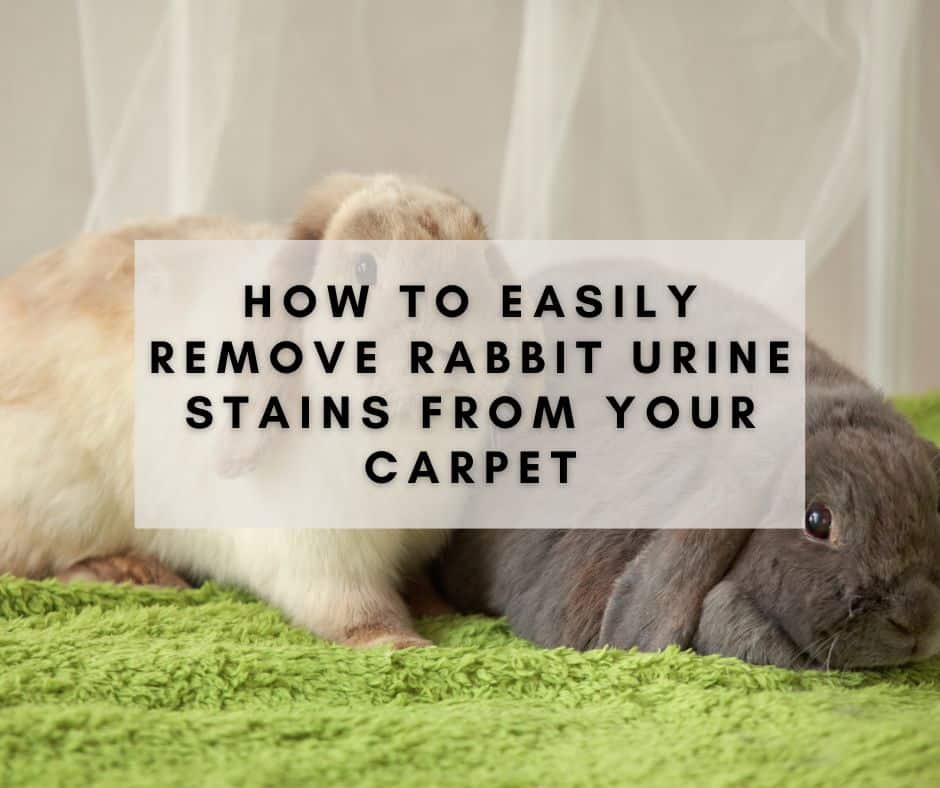Domestic rabbits are adorable and popular pets that are known for their playful and curious nature. They are social animals and can be trained to do a variety of tricks. One question that many pet owners have is whether domestic rabbits burrow like their wild counterparts.
As a matter of fact, domestic rabbits do have a natural instinct to burrow. However, their burrowing behavior may not be as prevalent as in their wild counterparts. Domestic rabbits are often kept in cages or indoor enclosures, which limits their ability to dig and burrow.
Factors such as age, breed, and environment can influence a rabbit’s burrowing behavior. In this article, we will explore the topic of domestic rabbits and burrowing behavior in more detail, including factors that influence their behavior, and how to prevent or encourage burrowing.
Contents
Key Takeaways
Understanding Domestic Rabbits
Domestic rabbits are popular pets that are known for their cute and cuddly appearance. However, they also have some unique behaviors that can be challenging for their owners to understand. One of these behaviors is burrowing.
Burrowing is a natural instinct for rabbits. In the wild, they dig burrows to create a safe and secure place to live and raise their young. Domestic rabbits, on the other hand, may dig burrows in their enclosures or in the yard if they are allowed to roam freely.
There are several reasons why domestic rabbits may burrow. One reason is that they are trying to create a comfortable and secure place to rest. Rabbits are prey animals, which means that they are always on the lookout for potential predators. By burrowing, they can create a safe place where they can relax without feeling threatened.
Another reason why rabbits may burrow is that they are trying to escape from something. For example, if they are frightened by a loud noise or a sudden movement, they may try to burrow into the ground to hide and feel safe.
It’s important for rabbit owners to understand their pet’s burrowing behavior and provide them with a safe and comfortable environment to do so. This can include providing a designated area in their enclosure where they can dig and burrow or creating a secure outdoor play area where they can roam freely and burrow in the ground.
Do Domestic Rabbits Burrow?
Domestic rabbits have been bred over time to be companion animals, and as such, they have lost many of their wild instincts. However, domestic rabbits still retain some of their natural behaviors, including digging and burrowing.
While not all domestic rabbits will burrow, many will show an inclination to dig. This behavior is often seen in rabbits that are kept outdoors, where they have access to soil and grass. In the wild, rabbits dig burrows as a form of protection from predators and to provide a safe, comfortable place to rest.
Domestic rabbits that are kept indoors may not have the opportunity to dig burrows, but they may still show signs of burrowing behavior. For example, they may dig at the carpet or bedding, or they may attempt to dig through the bottom of their enclosure.
To satisfy a domestic rabbit’s natural desire to dig, owners can provide their rabbits with a digging box or a tray filled with soil, sand, or shredded paper. This will allow the rabbit to engage in natural behaviors without causing damage to the home or enclosure.
It’s important to note that not all domestic rabbits will show an interest in burrowing, and not all rabbits that do burrow will do so to the same extent. Each rabbit is an individual with its own unique personality and behavior.
Overall, while domestic rabbits have been bred to be companion animals, they still retain some of their natural instincts, including digging and burrowing. Providing a digging box or tray can help satisfy a rabbit’s natural desire to dig and engage in natural behaviors.
Factors Influencing Burrowing Behavior
Breed
Different breeds of domestic rabbits have different burrowing behaviors. For example, Holland Lops and Netherland Dwarfs are known to be more active diggers than other breeds. This is because they were originally bred for their burrowing abilities. If you have one of these breeds, it is important to provide them with an appropriate space to dig and burrow.
Habitat
The habitat of domestic rabbits can also influence their burrowing behavior. If they are kept in a small cage or enclosure with no opportunity to dig, they may become frustrated and exhibit destructive behavior. Providing them with a larger space that includes soil or sand can encourage natural burrowing behavior.
As a matter of fact, it is crucial to select an enclosure that allows the rabbit to have ample space to roam around. Avoid purchasing cages from pet stores, as they are not ideal for rabbits. For more information on appropriate enclosure sizes, refer to the content of this post.
Age
Young rabbits are more likely to dig and burrow than older rabbits. This is because they are still developing their natural instincts and exploring their environment.
However, as rabbits age, they may become less interested in digging and burrowing. It is important to provide them with a suitable space to dig and burrow, regardless of age.
Health
Rabbits that are in good health are more likely to exhibit natural burrowing behavior. If a rabbit is experiencing pain or discomfort, they may not have the energy or desire to dig and burrow. It is important to monitor your rabbit’s health and address any issues promptly to ensure they are comfortable and happy.
Different factors can influence a domestic rabbit’s burrowing behavior. Breed, habitat, age, and health are all important considerations when providing a suitable environment for your pet rabbit.
Implications of Burrowing
For Rabbit Owners
Rabbits are natural burrowers, and providing them with a safe and suitable place to dig can promote their physical and mental well-being. Domestic rabbits may not have access to the same underground space as their wild counterparts, but they still have the instinct to dig and burrow. Owners can provide their rabbits with a suitable place to dig by providing them with a digging box or a designated area in the garden.
Burrowing can also provide rabbits with exercise and enrichment. Digging is a natural form of exercise that can help rabbits maintain a healthy weight and prevent boredom. Providing rabbits with a designated digging area can also help prevent destructive digging behavior elsewhere in the home or garden.
For the Environment
Rabbits are not native to many parts of the world, and their burrowing behavior can have negative implications for the environment. Rabbits can damage crops, gardens, and other vegetation by digging and burrowing. They can also cause erosion and soil degradation in areas with fragile ecosystems.
In some areas, rabbits can also compete with native species for resources and habitat. They can cause damage to the local flora and fauna, which can have ripple effects throughout the ecosystem.
It is important for rabbit owners to be responsible and aware of the potential implications of their pets’ burrowing behavior. Owners should ensure that their rabbits are not causing damage to the environment and take steps to prevent destructive behavior. This can include providing a designated digging area, supervising outdoor playtime, and ensuring that rabbits are not released into the wild.
Preventing or Encouraging Burrowing
Safe Burrowing Practices
Rabbits are natural burrowers and it is important to provide them with a safe and appropriate space to do so. Domestic rabbits should have access to a suitable digging area where they can satisfy their natural instincts. This can be achieved by providing a digging box or a designated area in the garden.
A digging box can be made from a shallow container filled with soil, sand, or even shredded paper. This will provide your rabbit with a safe and contained area to dig and burrow to their heart’s content. It is important to ensure that the materials used in the digging box are safe for your rabbit to ingest.
Grapevine Urban Garden Planters
If you choose to allow your rabbit to dig in the garden, it is important to ensure that the area is safe and free from any potential hazards. This includes removing any toxic plants, sharp objects, or dangerous chemicals. It is also important to ensure that the area is securely fenced and that your rabbit cannot escape or be attacked by predators.
Discouraging Burrowing
While it is important to provide rabbits with a safe and appropriate space to dig and burrow, there may be times when it is necessary to discourage this behavior. This may be the case if your rabbit is causing damage to your property or if they are digging in an unsafe area.
One way to discourage burrowing is to provide your rabbit with alternative activities to keep them entertained. This can include providing them with toys, puzzles, or even a playmate. Ensuring that your rabbit has plenty of exercise and mental stimulation can help to reduce their desire to dig and burrow.
If your rabbit is digging in an unsafe area, such as under a fence or near a dangerous object, it may be necessary to block off the area or provide a barrier to prevent access. This can be achieved by using chicken wire or other suitable fencing material.
In some cases, it may be necessary to discourage burrowing by providing a negative consequence. This can include using a deterrent spray or making a loud noise to startle your rabbit when they begin to dig in an inappropriate area. It is important to remember that punishment should never be used as a primary means of behavior modification and should only be used as a last resort.
Conclusion
Domestic rabbits have a natural instinct to burrow, which is an essential behavior that helps them survive in the wild. While domestic rabbits do not need to burrow to survive, they still exhibit this behavior, as seen in their digging and burrowing activities.
Rabbits dig burrows for several reasons, such as escaping from predators, giving birth to their young, and having a safe and comfortable space to sleep. They also use their burrows to escape from the heat, especially when they live in an area where it’s too hot to remain outdoors during the day.
It is important to note that domestic rabbits may cause damage to gardens and crops if they burrow in the yard or lawn. Therefore, it is recommended to provide them with a designated area to dig and burrow, such as a sandbox or a designated corner of the garden.
Overall, understanding a rabbit’s natural instinct to burrow can help rabbit owners provide a safe and enriching environment for their pets. By providing them with the opportunity to dig and burrow, owners can help satisfy their rabbits’ natural behaviors and promote their overall well-being.





